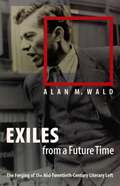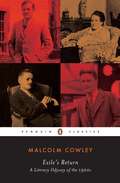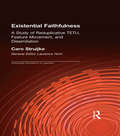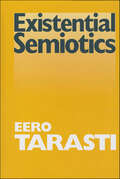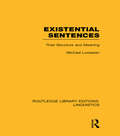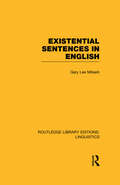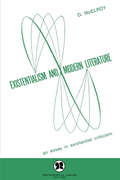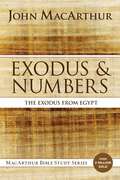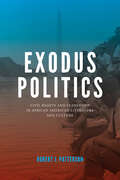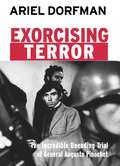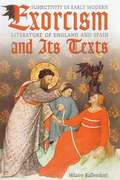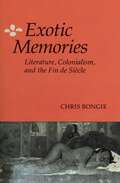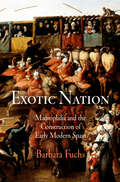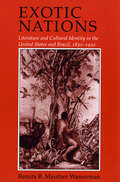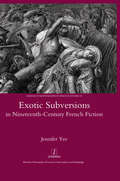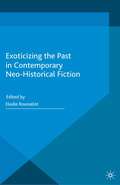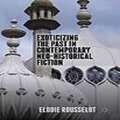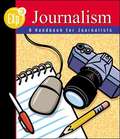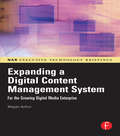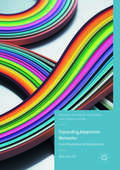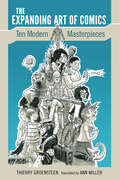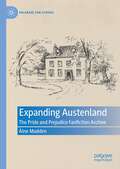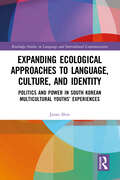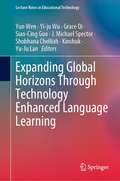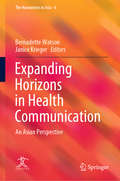- Table View
- List View
Exiles from a Future Time
by Alan M. WaldWith this book, Alan Wald launches a bold and passionate account of the U.S. Literary Left from the 1920s through the 1960s. Exiles from a Future Time, the first volume of a trilogy, focuses on the forging of a Communist-led literary tradition in the 1930s. Exploring writers' intimate lives and heartfelt political commitments, Wald draws on original research in scores of archives and personal collections of papers; correspondence and interviews with hundreds of writers and their friends and families; and a treasure trove of unpublished memoirs, fiction, and poetry. In fashioning a "humanscape" of the Literary Left, Wald not only reassesses acclaimed authors but also returns to memory dozens of forgotten, talented writers. The authors range from the familiar Mike Gold, Langston Hughes, and Muriel Rukeyser to William Attaway, John Malcolm Brinnin, Stanley Burnshaw, Joy Davidman, Sol Funaroff, Joseph Freeman, Alfred Hayes, Eugene Clay Holmes, V. J. Jerome, Ruth Lechlitner, and Frances Winwar.Focusing on the formation of the tradition and the organization of the Cultural Left, Wald investigates the "elective affinity" of its avant-garde poets, the "Afro-cosmopolitanism" of its Black radical literary movement, and the uneasy negotiation between feminist concerns and class identity among its women writers.
Exile's Return
by Donald W. Faulkner Malcolm CowleyThe adventures and attitudes shared by the American writers dubbed "The Lost Generation" are brought to life here by one of the group's most notable members. Feeling alienated in the America of the 1920s, Fitzgerald, Crane, Hemingway, Wilder, Dos Passos, Crowley, and many other writers "escaped" to Europe, some forever, some as temporary exiles. As Cowley details in this intimate, anecdotal portrait, in renouncing traditional life and literature, they expanded the boundaries of art.
Existential Faithfullness: A Study of Reduplicative TETU, Feature Movement and Dissimulation (Outstanding Dissertations in Linguistics)
by Caro StruijkeFirst Published in 2003. Initially a doctoral dissertation submitted to the University of Maryland at College Park in August 2000, this book is a revised version with an expanded discussion on dissimilation, as well as looking at existential faithfulness relations in reduplicative TETU and feature movement.
Existential Semiotics: Essays In Existential Semiotics (Advances in Semiotics #35)
by Eero TarastiExistential semiotics involves an a priori state of signs and their fixation into objective entities. These essays define this new philosophical field.
Existential Sentences: Their Structure and Meaning (Routledge Library Editions: Linguistics)
by Michael LumsdenWhat is the relationship between the structure of existential sentences and their meaning? How do hearers interpret existential sentences using pragmatic assumptions? This study attempts to account for the relationship between the structure of existential sentences (ES) and their meaning. The study of ES has received a great deal of attention because the construction has complex syntactic properties, is associated with restrictions of a semantic nature, and provides an interesting area for investigation at a pragmatic level.
Existential Sentences in English (Routledge Library Editions: Linguistics)
by Gary L. MilsarkIn order to bring some minimal amount of order to the chaos that almost inevitably attends the use of the word ‘existential’ in a linguistic investigation, the author reserved the term existential sentence (ES) to designate all and only those English sentences in which there appears an occurrence of the unstressed, non-deictic, ‘existential’ there. Thus the term will be used as a characterisation of a class of syntactic objects, not as a semantic description. With ES sentences including formations such as ‘There were several people talking’ and ‘There ensued a riot’, perhaps nowhere else do we find so clearly displayed the complexity and subtlety of the syntactic and semantic interactions which determine the nature of human language.
Existentialism and Modern Literature
by D. McelroyThe essays in Existentialism and Modern Literature by Davis McElroy were originally written as lectures. McElroy uses the word God in the sense that God governs man from within by making each of us a unique experiment in humanity. Existentialism is a term that has been applied to the work of a number of nineteenth and twentieth century philosophers who, despite profound doctrinal differences, took the human subject -- not merely the thinking subject, but the acting, feeling, living human individual and his or her conditions of existence -- as a starting point for philosophical thought. The titles of these lectures are The Problem of Man's Existence, Modern Literature: A Warning, and Existentialism and Modern Literature.
Exodus and Numbers: The Exodus from Egypt (MacArthur Bible Studies)
by John F. MacArthurAlthough the descendants of Jacob moved to Egypt as honored guests, in time they became despised slaves groaning under the mistreatment of Pharaoh. In response to the people's cries, God called a man named Moses to lead the Israelites out of Egypt into Canaan, but their journey took a dramatic forty-year detour when they failed to trust in God.In this study, pastor John MacArthur will guide you through an in-depth look at the historical period beginning with God's calling of Moses, continuing through the giving of the Ten Commandments, and concluding with the Israelites' preparations to enter the Promised Land.This study includes close-up examinations of Aaron, Caleb, Joshua, Balaam and Balak, as well as careful considerations of doctrinal themes such as "Complaints and Rebellion" and &“Following God's Law."—ABOUT THE SERIES—The MacArthur Bible Study series is designed to help you study the Word of God with guidance from widely respected pastor and author John MacArthur. Each guide provides intriguing examinations of the whole of Scripture by examining its parts and incorporates:Extensive, but straight-forward commentary on the text.Detailed observations on overriding themes, timelines, history, and context.Word and phrase studies to help you unlock the broader meaning and apply it to your life.Probing, interactive questions with plenty of space to write down your response and thoughts.
Exodus Politics: Civil Rights and Leadership in African American Literature and Culture
by Robert J. PattersonUsing the term "exodus politics" to theorize the valorization of black male leadership in the movement for civil rights, Robert J. Patterson explores the ways in which the political strategies and ideologies of this movement paradoxically undermined the collective enfranchisement of black people. He argues that by narrowly conceptualizing civil rights in only racial terms and relying solely on a male figure, conventional African American leadership, though frequently redemptive, can also erode the very goals of civil rights. The author turns to contemporary African American writers such as Ernest Gaines, Gayl Jones, Alice Walker, and Charles Johnson to show how they challenge the dominant models of civil rights leadership. He draws on a variety of disciplines—including black feminism, civil rights history, cultural studies, and liberation theology—in order to develop a more nuanced formulation of black subjectivity and politics. Patterson's connection of the concept of racial rights to gender and sexual rights allows him to illuminate the literature's promotion of more expansive models. By considering the competing and varied political interests of black communities, these writers reimagine the dominant models in a way that can empower communities to be self-sustaining in the absence of a messianic male leader.
Exorcising Terror: The Incredible Unending Trial of General Augusto Pinochet (Open Media Series)
by Ariel DorfmanRenowned author Ariel Dorfman, obsessed for twenty-five years with the malignant shadow General Pinochet cast upon Chile and the world, followed every twist and turn of the four year old trial in Great Britain, Spain and Chile as well as in the U.S., the country that had created Pinochet. Told as a suspense thriller, filled with court-room drama and sudden reversals of fortune, the book at the same time addresses some of today's most burning issues, made all the more urgent after the terrorist attacks of September 11th 2001. What are the limits of national sovereignty in a globalizing world? How does an ever more interconnected world judge crimes committed against humanity? What role do memory and pain and the rights of the survivors play in this struggle for a new system of justice? But above all, the author, by listening carefully to the voices of Pinochet's many victims, explores how can we purge ourselves of terror and fear once we have been traumatized, and asks if we can build peace and reconciliation without facing a turbulent and perverse past.
Exorcism and Its Texts: Subjectivity in Early Modern Literature of England and Spain (The Royal Society of Canada Special Publications)
by Hilaire KallendorfExorcism and demonic possession appear as recurrent motifs in early modern Spanish and English literatures. In Exorcism and Its Texts, Hilaire Kallendorf demonstrates how this 'infection' was represented in some thirty works of literature by fifteen different authors, ranging from canonical classics like Shakespeare, Cervantes, Ben Jonson, and Lope de Vega, to obscure works by anonymous writers. From comic and tragic drama to picaresque narrative and eight other genres, possession worked as a paradigm through which authors could convey extraordinary experience, including not only demonic possession but also madness or even murder. The devil was thought to be able to enter the bodily organs and infect memory, imagination, and reason. Some came to believe that possession was tied to enthusiasm, poetic frenzy, prophecy, and genius. Authors often drew upon sensational details of actual exorcisms. In some cases, such as in Shakespeare, curing the body (and the body politic) meant affirming cultural authority; in others, as with Zamora, it clearly meant subverting it. Drawing on the disciplines of literary theory and history, Exorcism and its Texts is the first comprehensive study of this compelling topic.
Exotic Memories: Literature, Colonialism, and the Fin de Siècle
by Chris BongieThis book focuses on the literature of exoticism at the turn of the last century and how it foreshadows our own fin de siècle. Earlier writers of exoticism had turned away from the West and its modernity, rejecting the social changes caused by industrialization and displacing onto 'savage' or 'primitive' cultures their aspirations for political freedom. By the turn of the century, however, European nations had reduced vast areas of the globe to colonial status: this global exportation of Western cultural norms and economic systems had a critical effect on the literature of exoticism. In concentrating on writers from the age of the New Imperialism (1880-1920), this book reveals an important contradiction at the heart of the exoticist impulse: the very expansion that enabled European writers to go in search of exotic Others ensured the eventual disappearance of the exotic. Turn-of-the-century writers of exoticism thus give voice to a deep nostalgia both for the values supposedly lost to the West in its process of modernization and for those once exotic places in which they found, with increasing disappointment, not pristine innocence but merely the traces of their own culture. The author concentrates on four writers - Jules Verne, Pierre Loti, Victor Segalen, and Joseph Conrad - although he touches on a number of other writers, and even painters, like Paul Gauguin. The works of these four writers foreground attitudes and assumptions useful for understanding a wide array of phenomena: an examination of these works shows how nostalgia for a cultural Other was built into the intellectual configuration of modernism, throws light on the early history of anthropology, and helps us understand features of our own cultural formation that are becoming increasingly important in today's global village. Making an explicit link between turn-of-the-century exoticism and the present day, the book concludes with a critical assessment of Pier Paolo Pasolini's neo-exoticist attachment to a supposedly revolutionary Third World in his poetry and literary criticism. The book's critical stance is noteworthy, drawing its basic assumptions from pensiero debole, the 'weak thought' of the contemporary Italian philosopher Gianni Vattimo, whose poststructuralist theories are only now becoming known in the United States. 'Weak thought' seeks to supersede outmoded, metaphysical categories of thought, not by replacing them with something new, but by an elegaic, recollective, and rhetorical dwelling within those categories. The author also makes creative use of narrative theory, and draws on the recent 'new historicism', reading literary texts to excellent effect against the historical events that made them possible.
Exotic Nation
by Barbara FuchsIn the Western imagination, Spain often evokes the colorful culture of al-Andalus, the Iberian region once ruled by Muslims. Tourist brochures inviting visitors to sunny and romantic Andalusia, home of the ingenious gardens and intricate arabesques of Granada's Alhambra Palace, are not the first texts to trade on Spain's relationship to its Moorish past. Despite the fall of Granada to the Catholic Monarchs in 1492 and the subsequent repression of Islam in Spain, Moorish civilization continued to influence both the reality and the perception of the Christian nation that emerged in place of al-Andalus.In Exotic Nation, Barbara Fuchs explores the paradoxes in the cultural construction of Spain in relation to its Moorish heritage through an analysis of Spanish literature, costume, language, architecture, and chivalric practices. Between 1492 and the expulsion of the Moriscos (Muslims forcibly converted to Christianity) in 1609, Spain attempted to come to terms with its own Moorishness by simultaneously repressing Muslim subjects and appropriating their rich cultural heritage. Fuchs examines the explicit romanticization of the Moors in Spanish literature--often referred to as "literary maurophilia"--and the complex, often silent presence of Moorish forms in Spanish material culture. The extensive hybridization of Iberian culture suggests that the sympathetic depiction of Moors in the literature of the period does not trade in exoticism but instead reminded Spaniards of the place of Moors and their descendants within Spain. Meanwhile, observers from outside Spain recognized its cultural debt to al-Andalus, often deliberately casting Spain as the exotic racial other of Europe.
Exotic Nations: Literature and Cultural Identity in the United States and Brazil, 1830–1930
by Renata WassermanIn this highly original and critically informed book, Renata R. Mautner Wasserman looks at how, during the first decades following political independence, writers in the United States and Brazil assimilated and subverted European images of an "exotic" New World to create new literatures that asserted cultural independence and defined national identity. Exotic Nations demonstrates that the language of exoticism thus became part of the New World’s interpretation of its own history and natural environment.
Exotic Subversions in Nineteenth-century French Fiction
by Jennifer YeeIn the course of the nineteenth century France built up a colonial empire second only to Britain's. The literary tradition in which it dealt with its colonial 'Other' is frequently understood in terms of Edward Said's description of Orientalism as both a Western projection and a 'will to govern' over the Orient. There is, however, a body of works that eludes such a simple categorisation, offering glimpses of colonial resistance, of a critique of imperialist hegemony, or of a blurring of the boundaries between the Self and the Other. Some of the ways in which the imperialist enterprise is subverted in the metropolitan literature of this period are examined in this volume through detailed case studies of key works by Chateaubriand, Hugo, Flaubert and Segalen.
Exoticizing the Past in Contemporary Neo-Historical Fiction
by E. RousselotThis collection of essays is dedicated to examining the recent literary phenomenon of the 'neo-historical' novel, a sub-genre of contemporary historical fiction which critically re-imagines specific periods of history.
Exoticizing the Past in Contemporary Neo-Historical Fiction
by Elodie RousselotThis collection of essays is dedicated to examining the recent literary phenomenon of the 'neo-historical' novel, a sub-genre of contemporary historical fiction which deliberately and self-consciously re-imagines specific periods of history. The contributions reveal how, although set in the past, neo-historical fiction is very much aimed at answering the needs and preoccupations of the present, and discuss the extent to which, as a result, its representation of one historical period for consumption by another can at times rely on 'exoticizing' strategies. Yet, as the essays in this collection demonstrate, the neo-historical novel can also offer a powerful means of contesting the very exoticist drives it seems to perpetuate, through a process of historical re-appropriation and re-articulation which simultaneously brings to light and challenges persisting cultural misconceptions about the past.
EXp3 Journalism: A Handbook for Journalists
by Mark Levin"EXp3 Journalism" is an ideal journalism program for middle school students. The book concentrates on newspaper journalism using concepts and skills that are applicable to all areas of journalism. This program uses activities, highly readable text, extensive art, and practical exercises to encourage an enlightening learning experience.
Expanding a Digital Content Management System: for the Growing Digital Media Enterprise (Nab Executive Technology Briefings Ser.)
by Magan H. ArthurBuilding large integrated content management systems is a daunting task and there is little guidance for the implementation process for the mid-level manager. There are thousands of home grown or old standalone systems in need of upgrading and expanding to keep up with the growing challenge of digital media. This book allows the non-technical executive to understand the key concepts and issues. It covers the technical process and business aspects of expanding a system.
Expanding Adaptation Networks: From Illustration to Novelization (Palgrave Studies in Adaptation and Visual Culture)
by Kate NewellThis book addresses print-based modes of adaptation that have not conventionally been theorized as adaptations—such as novelization, illustration, literary maps, pop-up books, and ekphrasis. It discusses a broad range of image and word-based adaptations of popular literary works, among them The Wizard of Oz, Alice in Wonderland, Daisy Miller, The Strange Case of Dr. Jekyll and Mr. Hyde, Moby Dick, and Adventures of Huckleberry Finn. The study reveals that commercial and franchise works and ephemera play a key role in establishing a work’s iconography. Newell argues that the cultural knowledge and memory of a work is constructed through reiterative processes and proposes a network-based model of adaptation to explain this. Whereas most adaptation studies prioritize film and television, this book’s focus on print invites new entry points for the study of adaptation.
The Expanding Art of Comics: Ten Modern Masterpieces
by Thierry GroensteenIn The Expanding Art of Comics: Ten Modern Masterpieces, prominent scholar Thierry Groensteen offers a distinct perspective on important evolutions in comics since the 1960s through close readings of ten seminal works. He covers over half a century of comics production, sampling a single work from the sixties (Ballad of the Salt Sea by Hugo Pratt), seventies (The Airtight Garage of Jerry Cornelius by Moebius), eighties (Watchmen by Alan Moore and Dave Gibbons), and nineties (Epileptic by David B.). Then this remarkable critic, scholar, and author of The System of Comics and Comics and Narration delves into recent masterpieces, such as Building Stories by Chris Ware.Each of these books created an opening, achieved a breakthrough, offered a new narrative model, or took up an emerging tendency and perfected it. Groensteen recaptures the impact with which these works, each in its own way, broke with what had gone before. He regards comics as an expanding art, not only because groundbreaking works such as these are increasing in number, but also because it is an art that has only gradually become aware of its considerable potential and is unceasingly opening up new expressive terrain.
Expanding Austenland: The Pride and Prejudice Fanfiction Archive (Palgrave Fan Studies)
by Áine MaddenExpanding Austenland: The Pride and Prejudice Fanfiction Archive explores Jane Austen’s reception in popular culture through an exploration of the ever-expanding terrain of online fanfiction, professionally published (profic) texts, and other intertextual reworkings inspired by the author’s most popular novel, Pride and Prejudice. The book argues that given its pervasiveness, Pride and Prejudice could be usefully considered not as a single novel, but as an entire ‘archive’ of interrelated texts, or as a portal that opens a ‘virtual world’ for readers to expand and explore. By examining the Pride and Prejudice archive of interrelated texts, this book analyses the process through which an individual novel can develop a virtual life, or afterlife. The evolving world that is opened by Pride and Prejudice, and extended and enriched through fanfiction, is conceptualised in the monograph as ‘Austenland’.
Expanding Ecological Approaches to Language, Culture, and Identity: Politics and Power in South Korean Multicultural Youths’ Experiences (Routledge Studies in Language and Intercultural Communication)
by Jaran ShinThis book explores the process of identity (re)construction among mixed-heritage children within the context of globalization through the lens of its intersection with Korean society. The volume illustrates how these multicultural children mediate hybrid social spaces and examines their personal approaches toward translating, resisting, and transforming the entanglements engendered in those spaces. By tracing the trajectories of their identity (re)formations over several years, the book details the paths these youths have taken to navigate diverse contact zones and cope with institutional regulatory mechanisms. It highlights that, in the face of prevailing social stigma, they actively involve themselves in political action in their day-to-day lives: they redefine what it means to be Korean and/but multicultural, challenge simplistic membership boundaries, and develop unique strategies to resist and subsist. These efforts to question the essentialist logic of authenticity demonstrate that these youths, situated at the convergence of globalization, migration, inequality, and political power, represent a challenge to both national and global orders. Arguing that ecological perspectives need to direct greater attention toward the political as well as the posthumanist dimensions of language, culture, and identity, this book is key reading for scholars in applied linguistics, intercultural communication, and Asian studies.
Expanding Global Horizons Through Technology Enhanced Language Learning (Lecture Notes in Educational Technology)
by Yun Wen Yi-Ju Wu Grace Qi Siao-Cing Guo J. Michael Spector Shobhana Chelliah Kinshuk Yu-Ju LanThis book uncovers the important issues in language learning and teaching in the intelligent, digital era. “Social connectivity” is a contemporary style of learning and living. By engaging in the connectivity of physical and digital worlds, how essential parts of language learning and teaching can be achieved? How can the advanced technologies, such as virtual reality and artificial intelligent, be used to solve the problems encountered by language learners? To answer the above mentioned question, plenty of inspiring studies are included in the book. It is a platform of exchange for researchers, educators, and practitioners on the theory and/or application of state-of-the-art uses of technology to enhance language learning.
Expanding Horizons in Health Communication: An Asian Perspective (The Humanities in Asia #6)
by Bernadette Watson Janice KriegerThis book explores the ways in which Eastern and Western medical knowledge inform each other in the treatment of people in Asia across a wide range of health issues. To do so, it brings together health communication scholars from diverse disciplines both in Hong Kong and worldwide and combines their observations and expertise with those of clinicians working in healthcare in Asia to provide a topical portrait of the expanding horizons of healthcare in Asia. Social scientists and clinicians discuss their research and clinical practice respectively using a range of analytic approaches that include traditional qualitative and quantitative methodologies, as well as cutting-edge computer diagnostics that digitally visualize health interactions across time. The book presents an innovative and interdisciplinary investigation of Eastern and Western perspectives on healthcare in Asia. It covers topics concerned with a range of mental and physical problems that are currently confronting Asia. Importantly, the views and experiences of front line clinicians delivering patient care in Asia are also included. Accordingly, the book offers varied and innovative perspectives on health communication issues in China, Singapore, Bangladesh and Australia.
